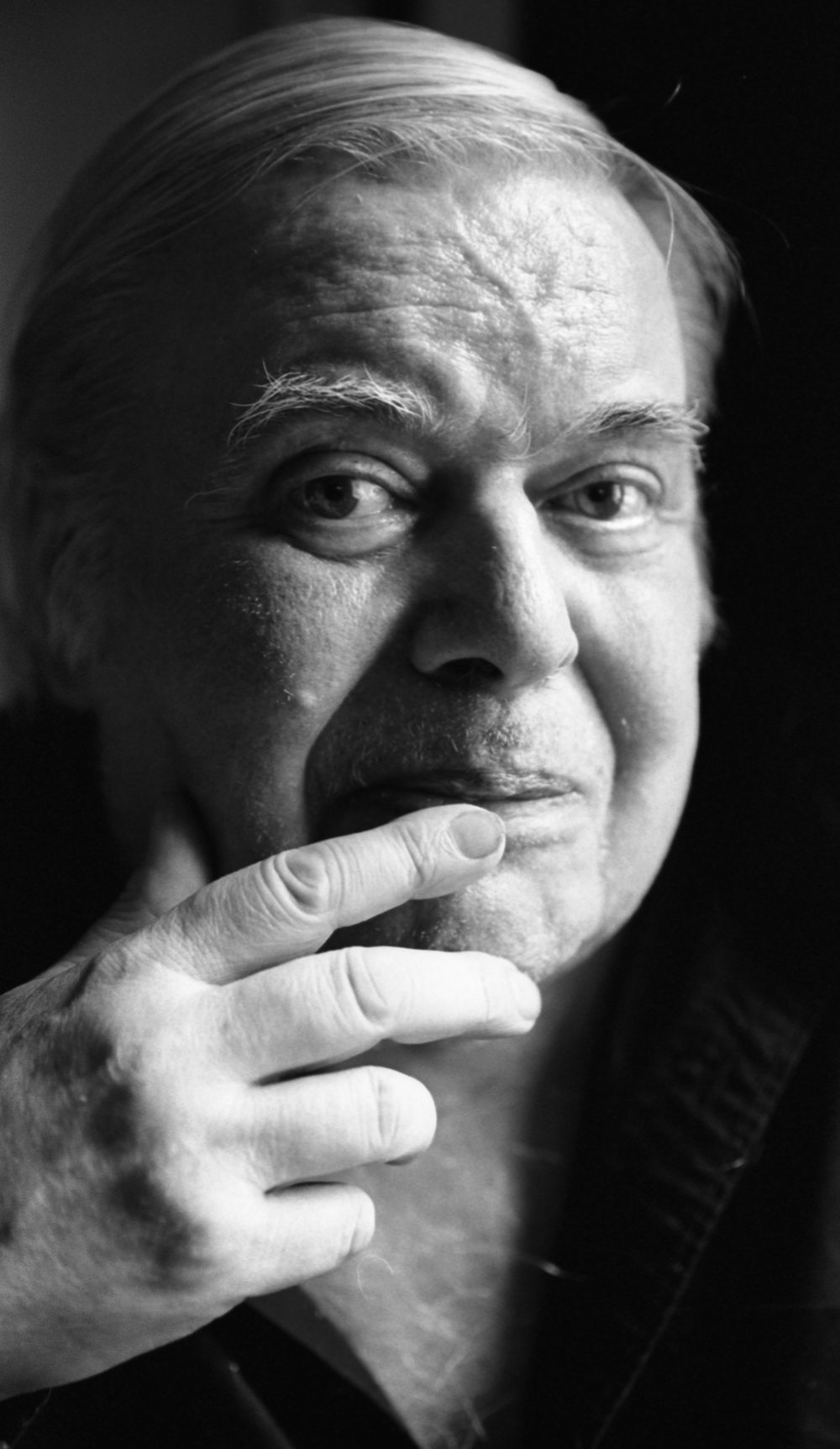
The ‘dark legacy’ of Swiss artist-designer Hans R. Giger is undeniably far-reaching and indelibly memorable. A graduate of the (then called) School of Applied Arts, Zurich, Giger came into prominence with an airbrush and free-hand painting style which found their way into the pages of his first published work – Necronomicon (1977). His fantasyscapes were dystopic, drained off luminescent colour, bereft of the life giving rays of the sun, and with his thematic obsession with the biomechanical universe – coupling industrial machine to organic animal-human, he manages to marry the distant future and the distant past with an inimitable, unforgiving bleakness. This resulted in a ‘love it-hate it-cannot ignore it’ relationship of many a viewer to his prolific artistic output across various media. British film director (Sir) Ridley Scott got hold of a copy of ‘Necronomicon’ during the planning of his film ‘Alien’ and contacted Giger to design the ‘Alien‘ (1979) filmscape. The rest is cinema/visual design history, putting Gigers work into international recognition, while influencing popular culture (television/film/video games/graphic novel/album art/tattoo art) in myriad ways. His biomechanical work is transformational and strangely disquieting, and his background in architecture and industrial design also led him to pursue his dark visions via sculptural and interior/architectural expressions. The spectacle of the biomechanical, as created by Giger, remains an important reminder of our times – of the industrial machine wanting to remain animal/human or animal/human-like, and not becoming either in the process, giving way to the possible fall of our cumulative ‘civilizations.’
![]()
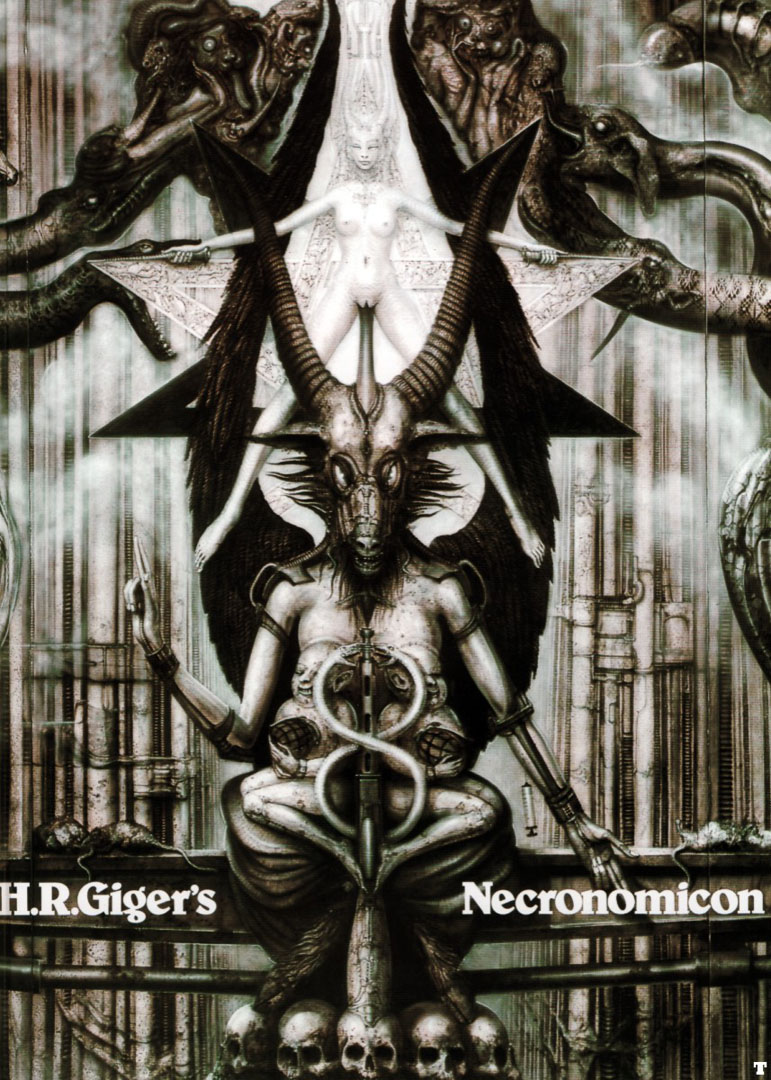
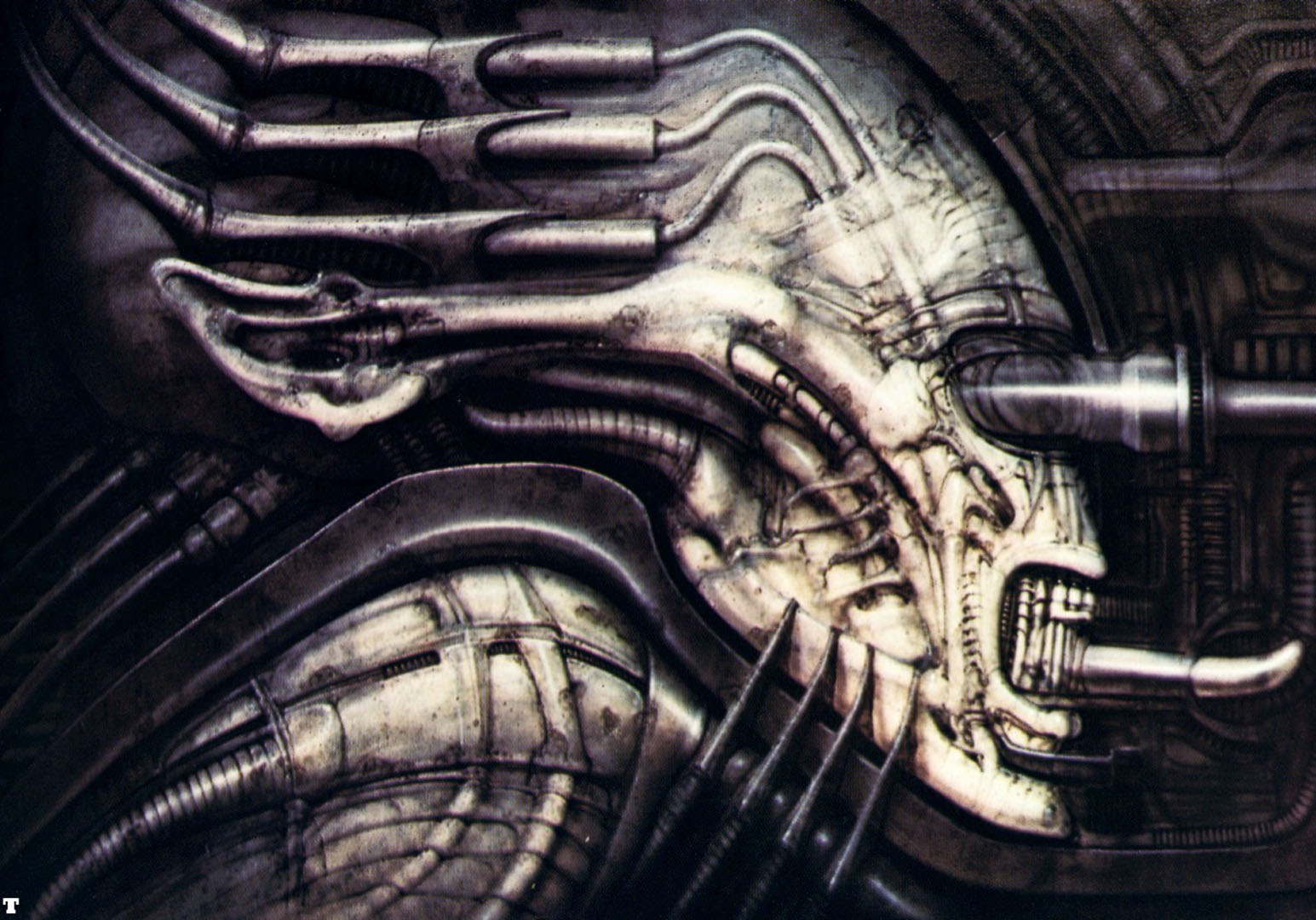
From ‘Necronomicon’
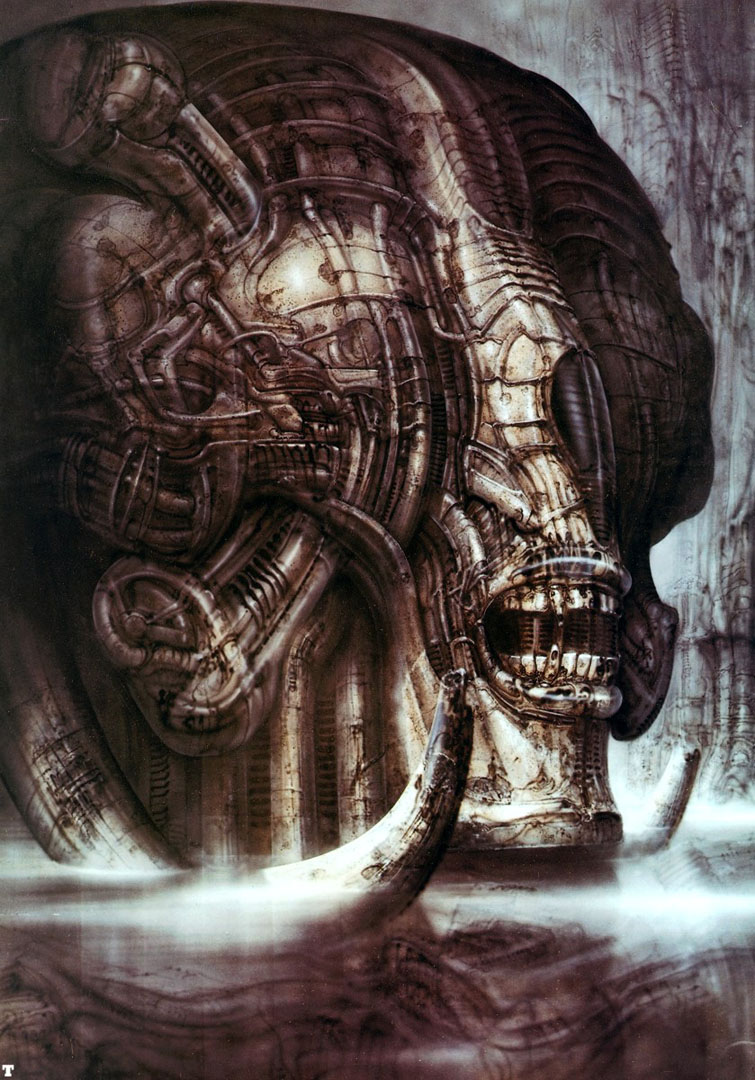
From ‘Necronomicon’
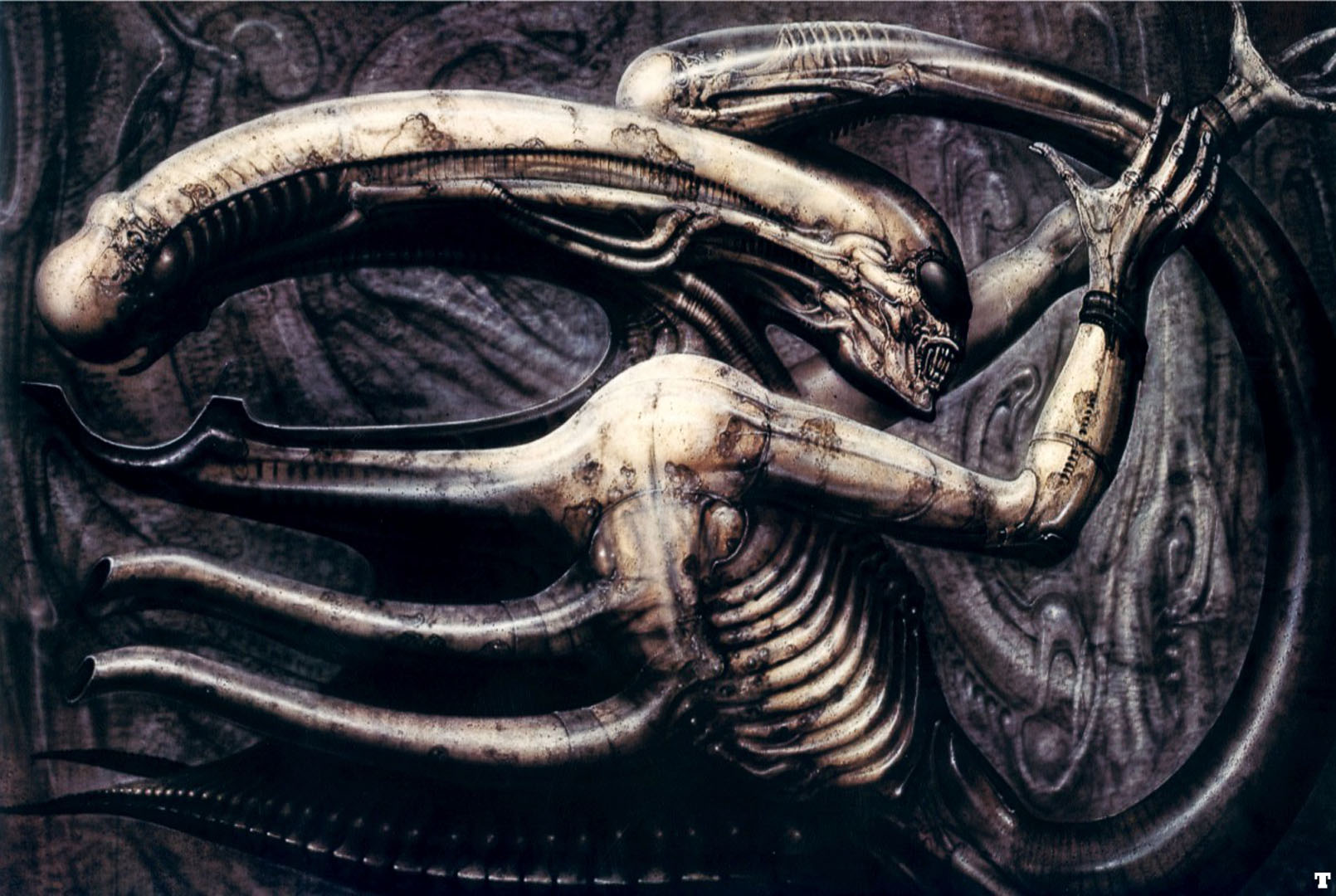
From ‘Necronomicon’
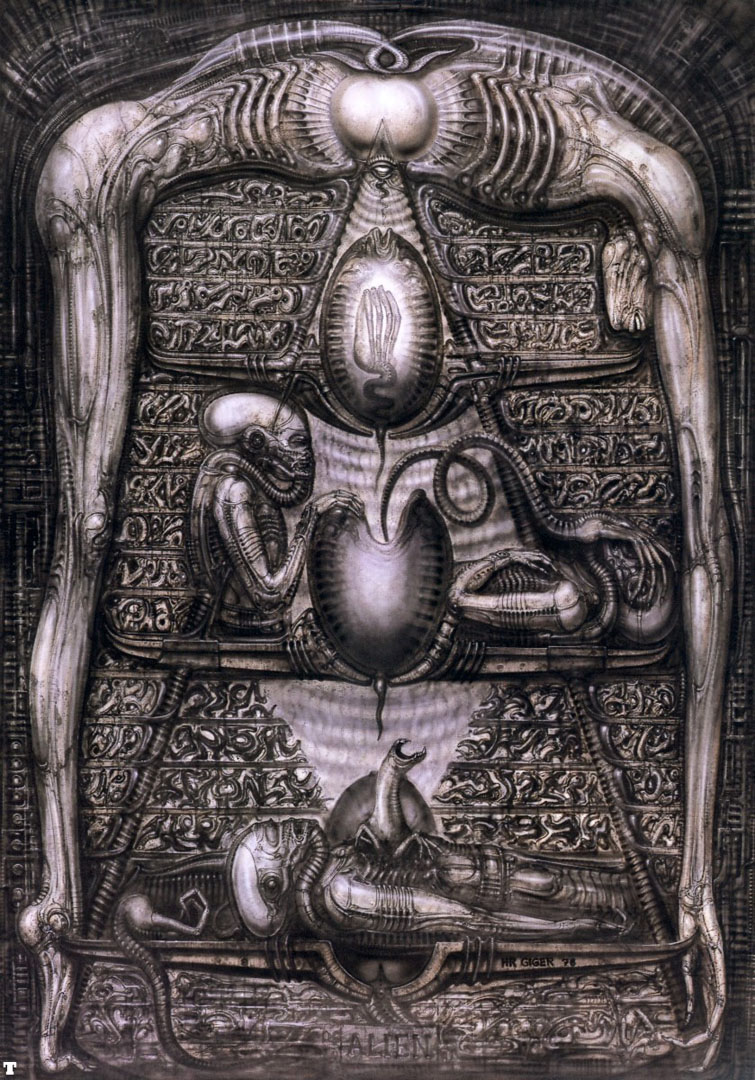
Alien Hieroglyphics
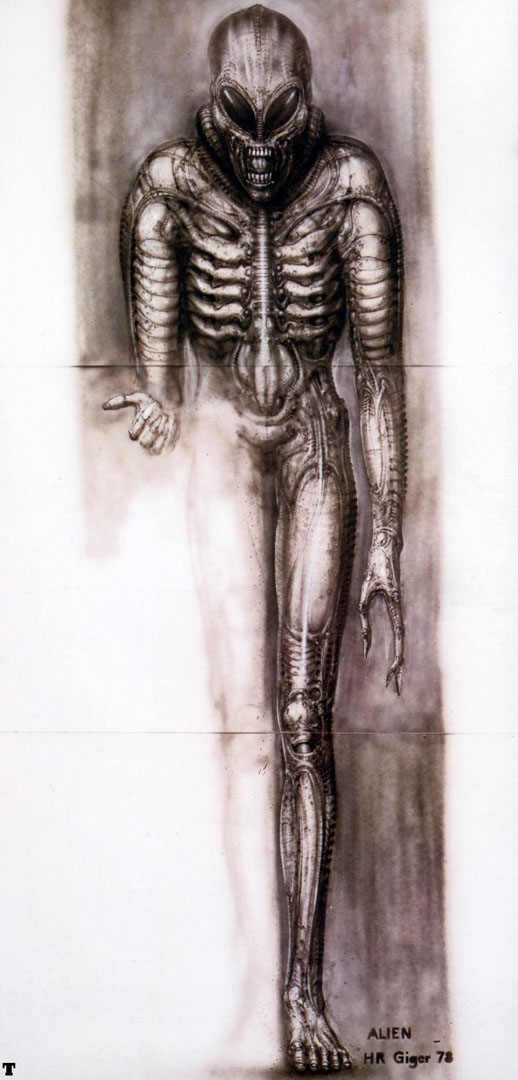
Alien I
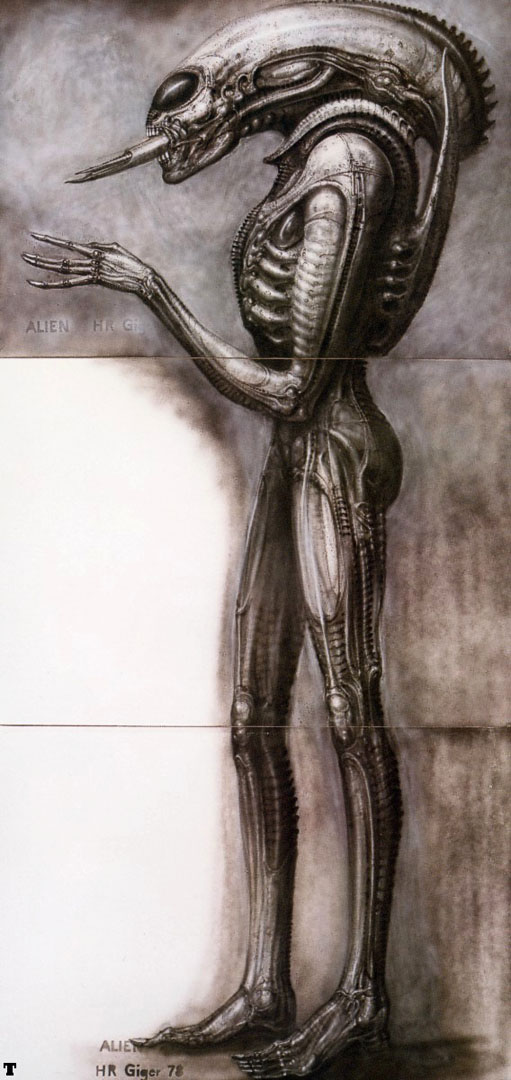
Alien II

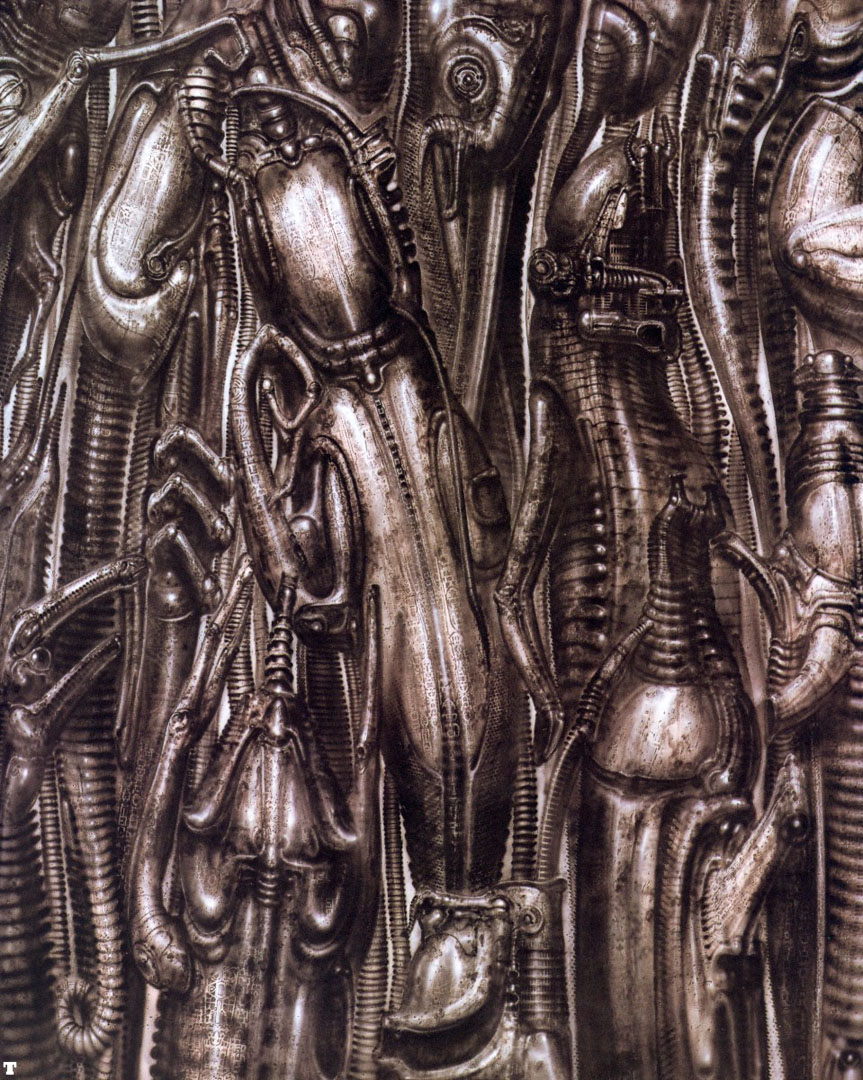
Alien Monster II
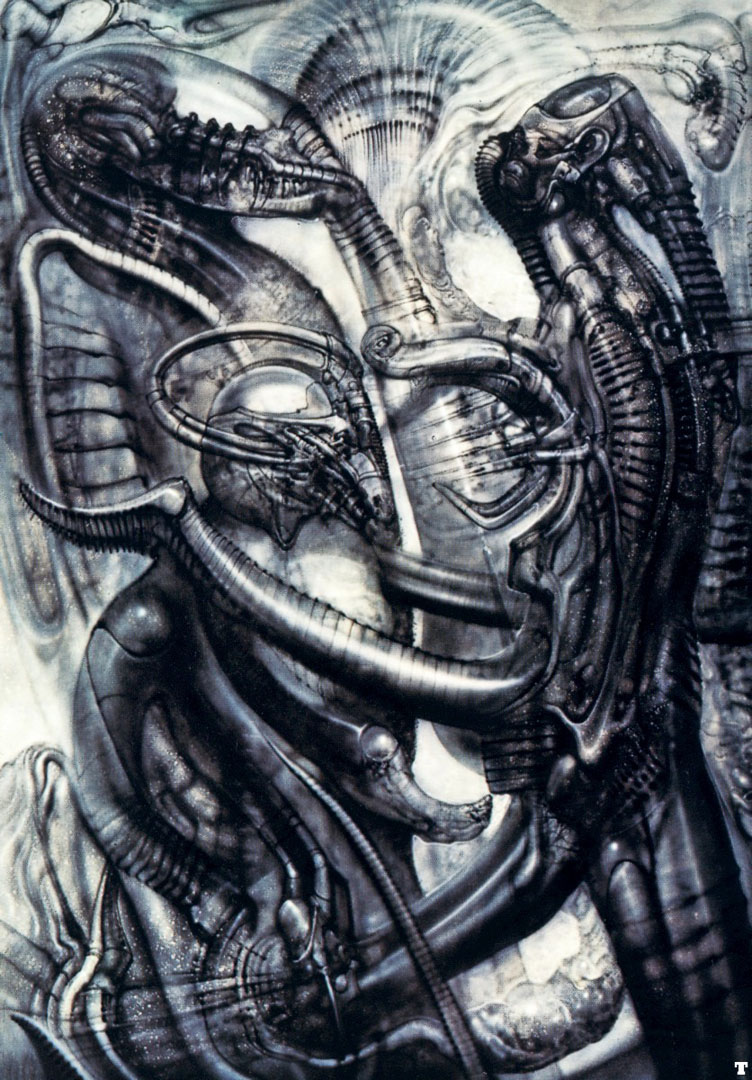
Biomechanical landscape V

Biomechanical landscape VI
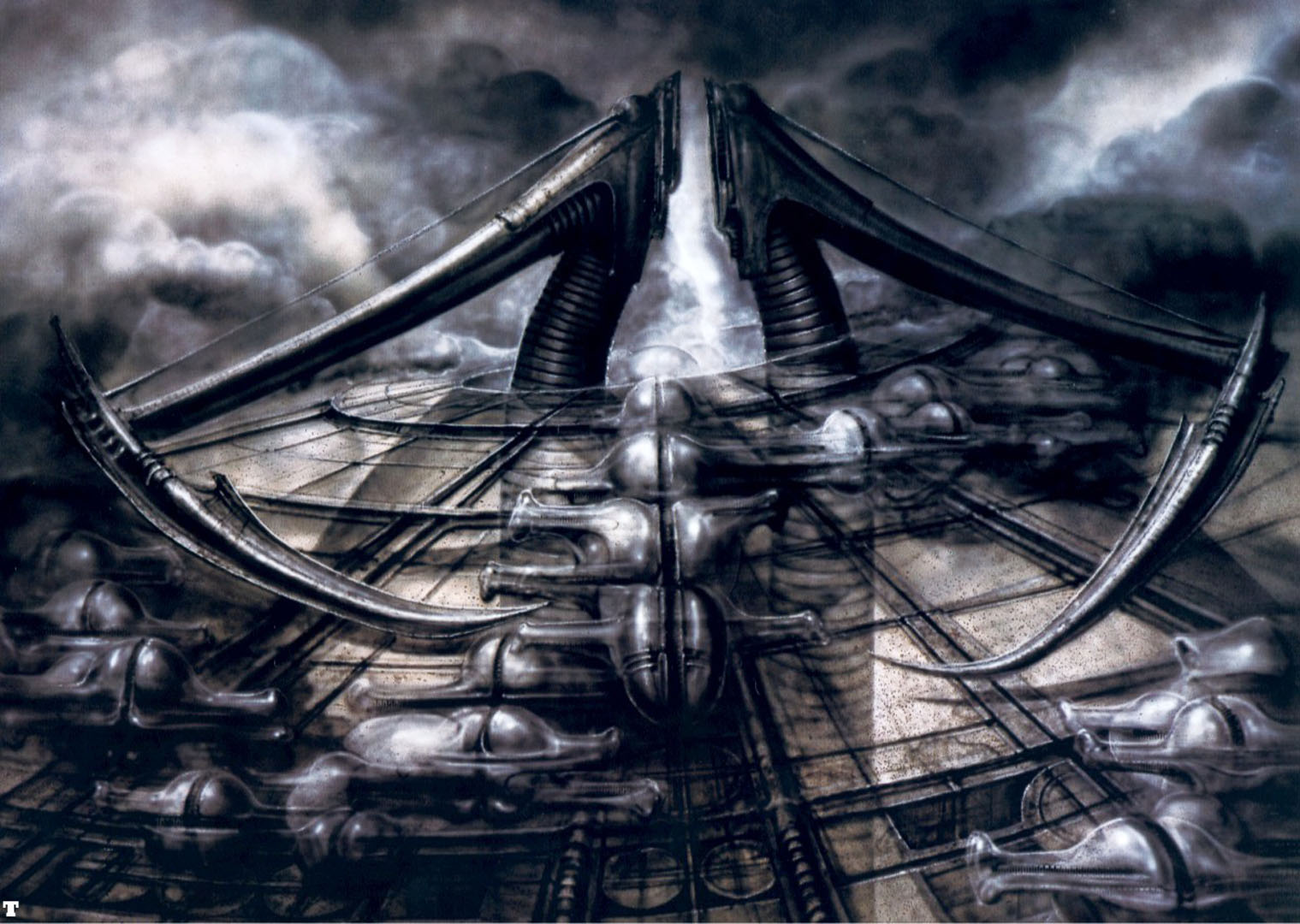
Biomechanical landscape. Scythe.
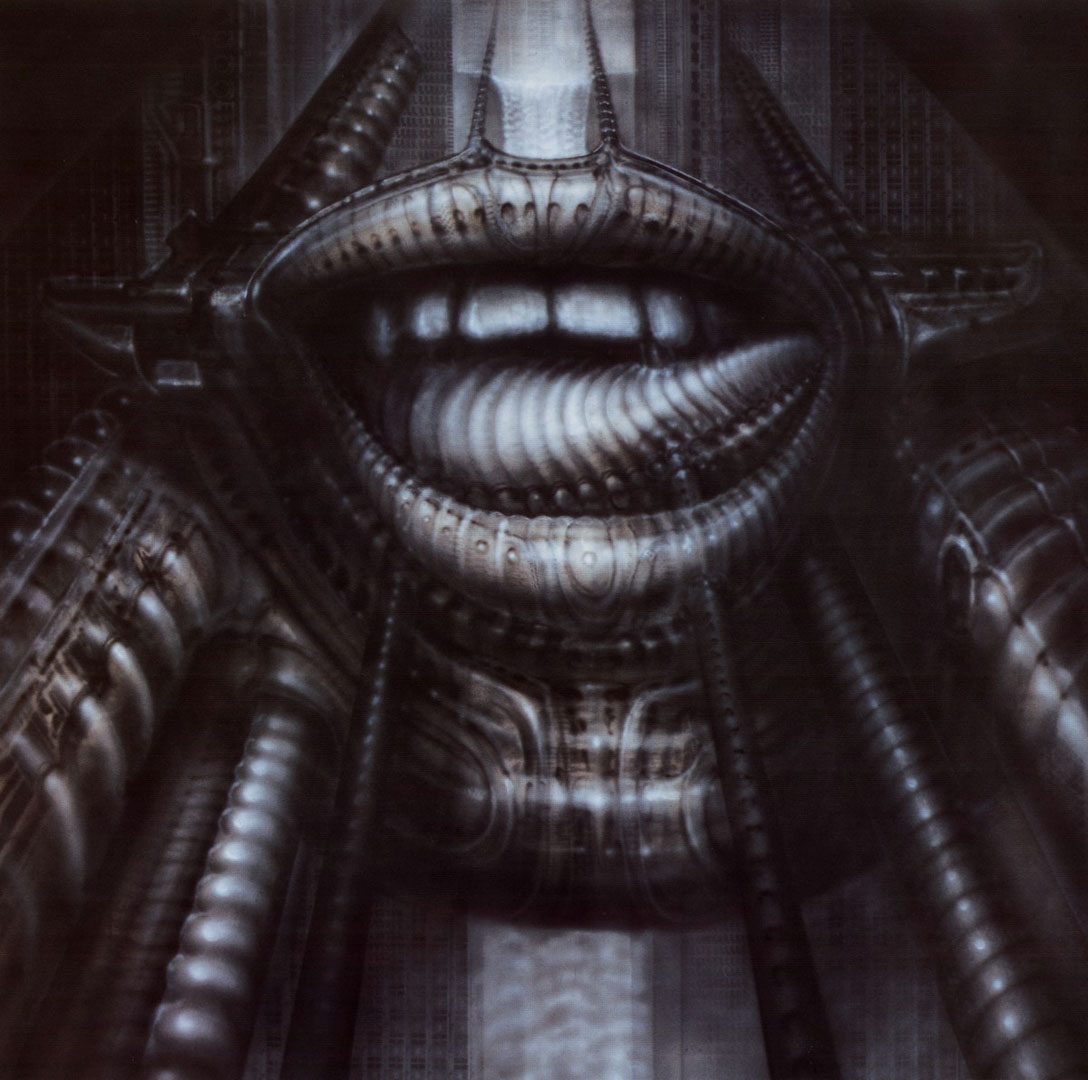
ELP. XI.
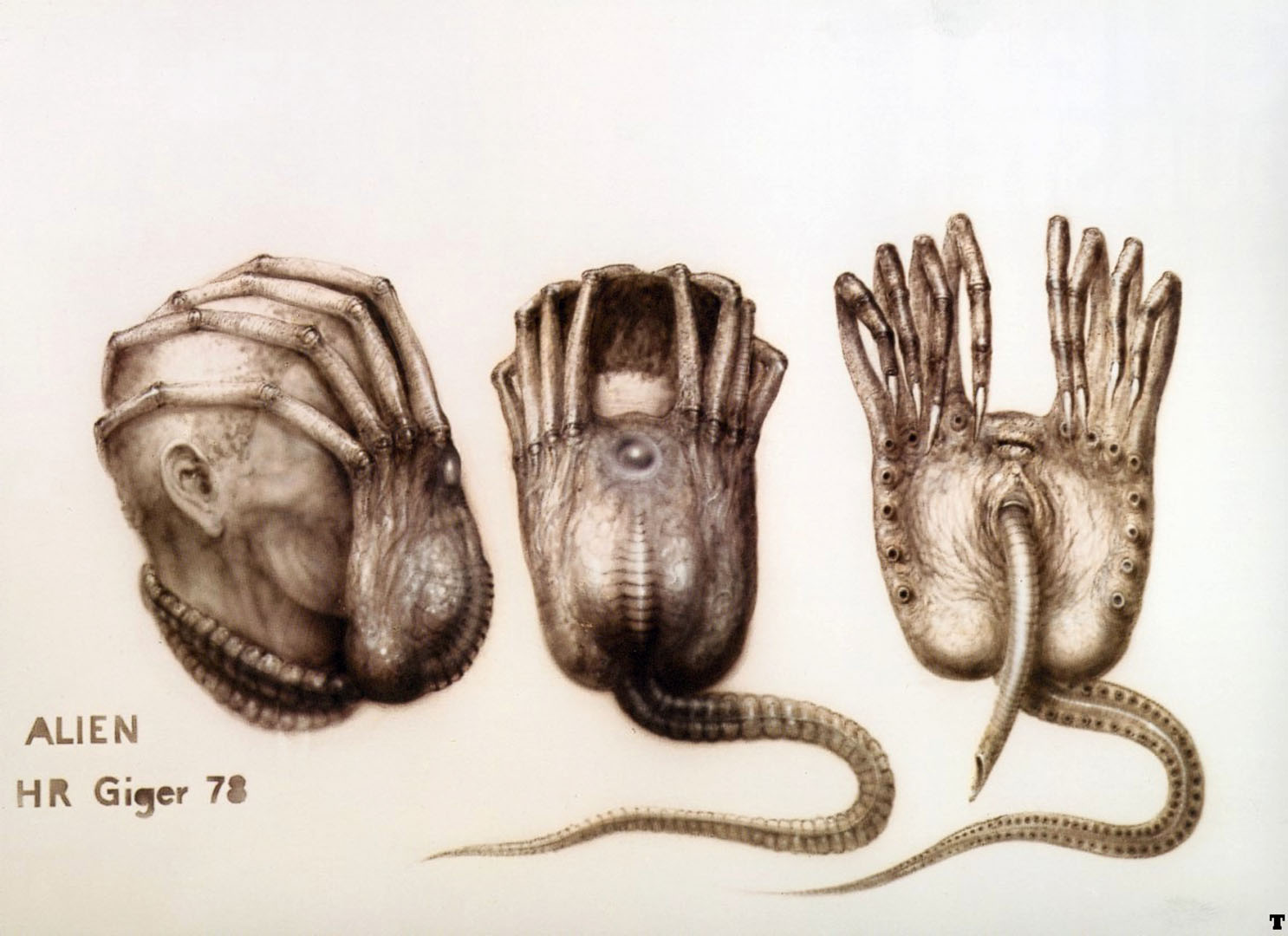
Facehugger IV.
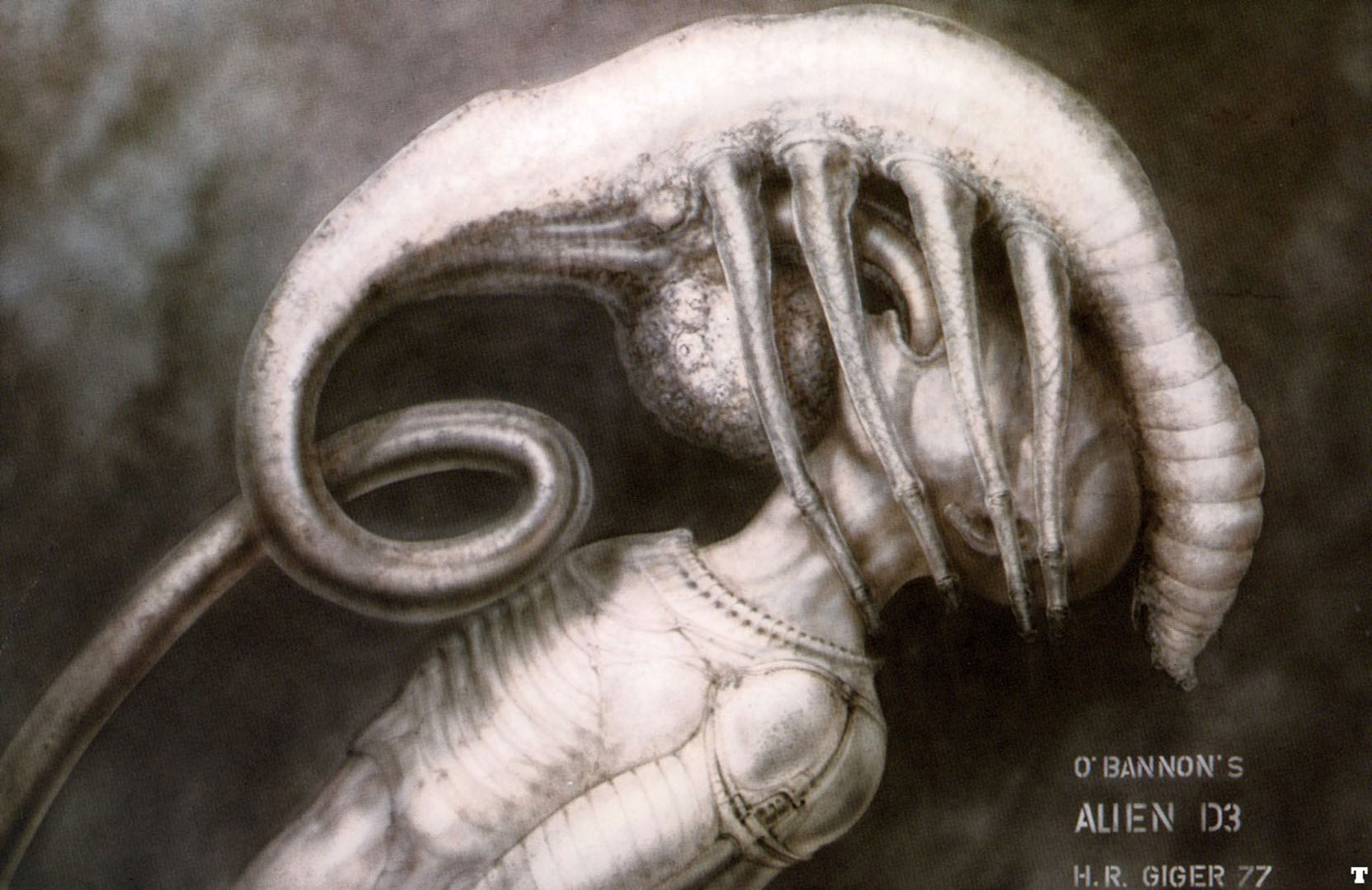
Facehugger I.

Landscape XXVIII.
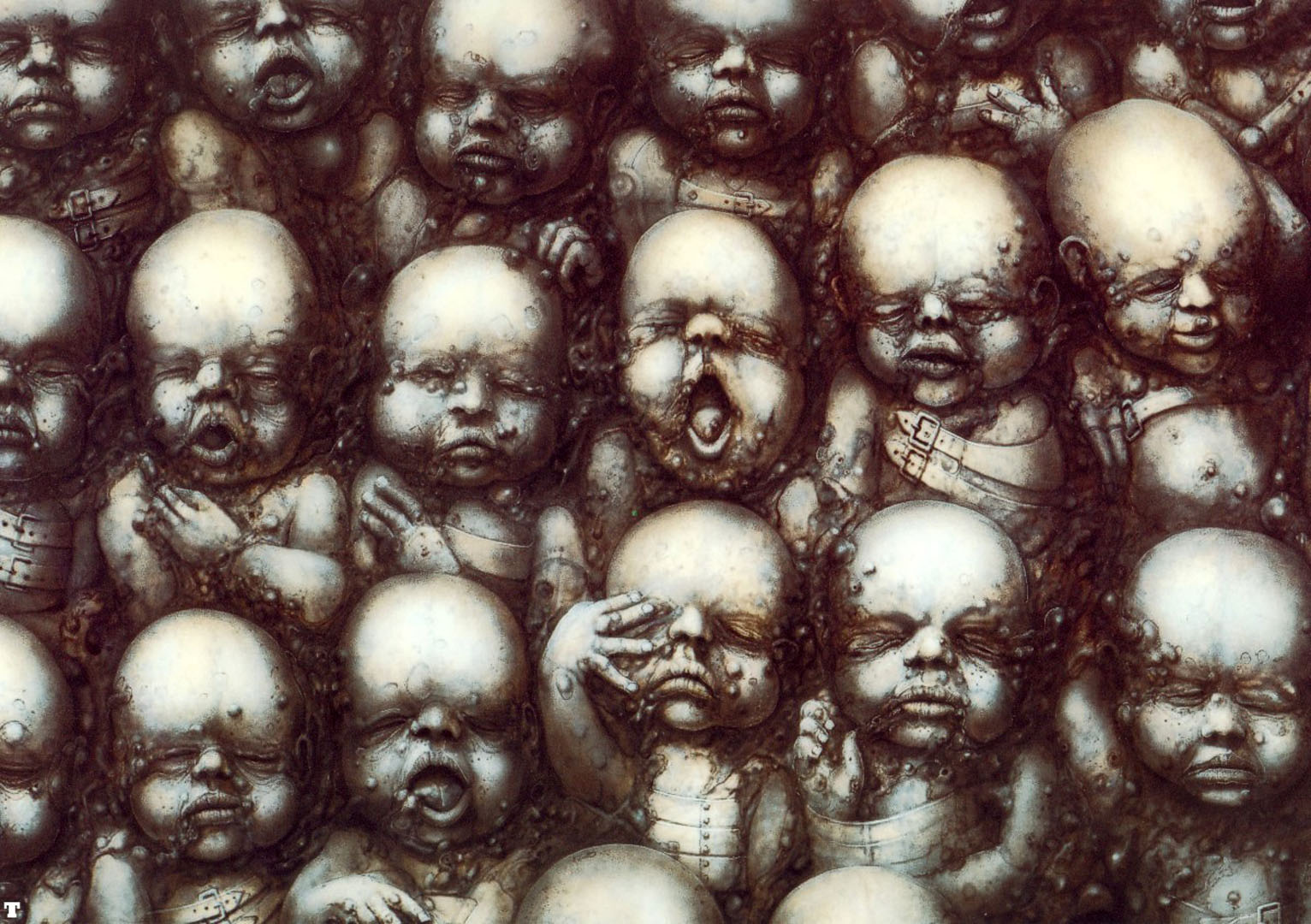
Landscape XVIII.
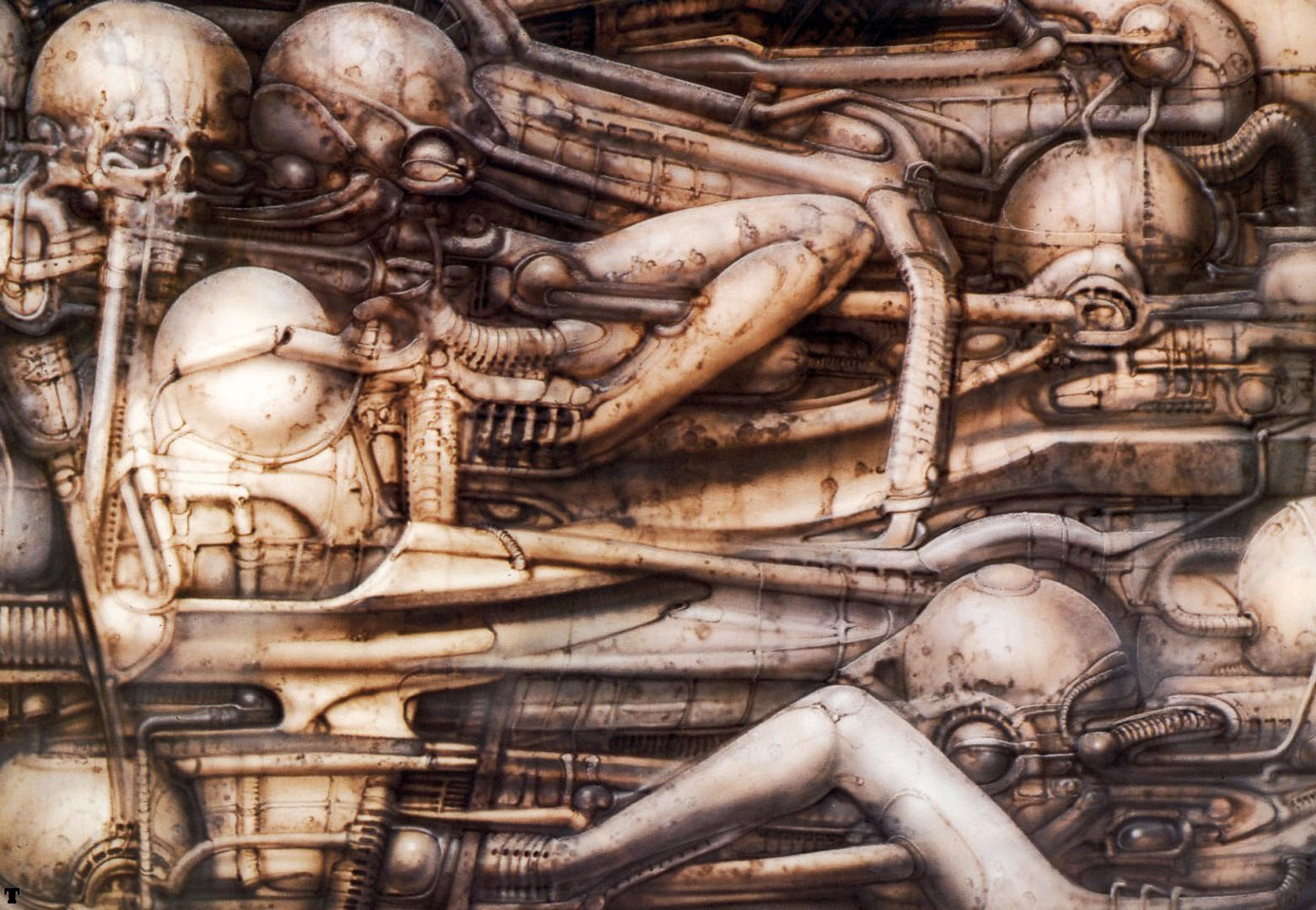
Landscape XVII.
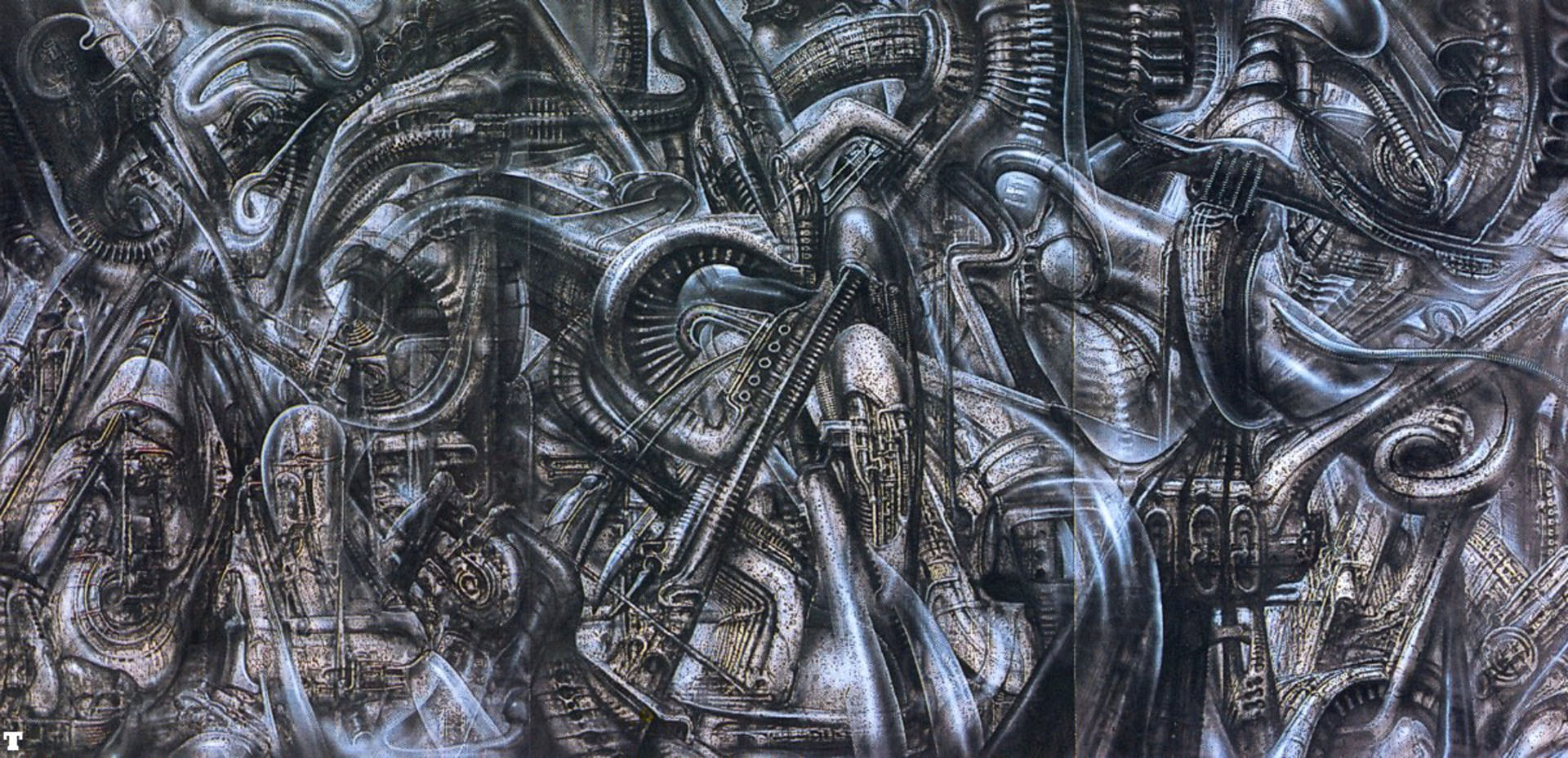
New York City XXVI.
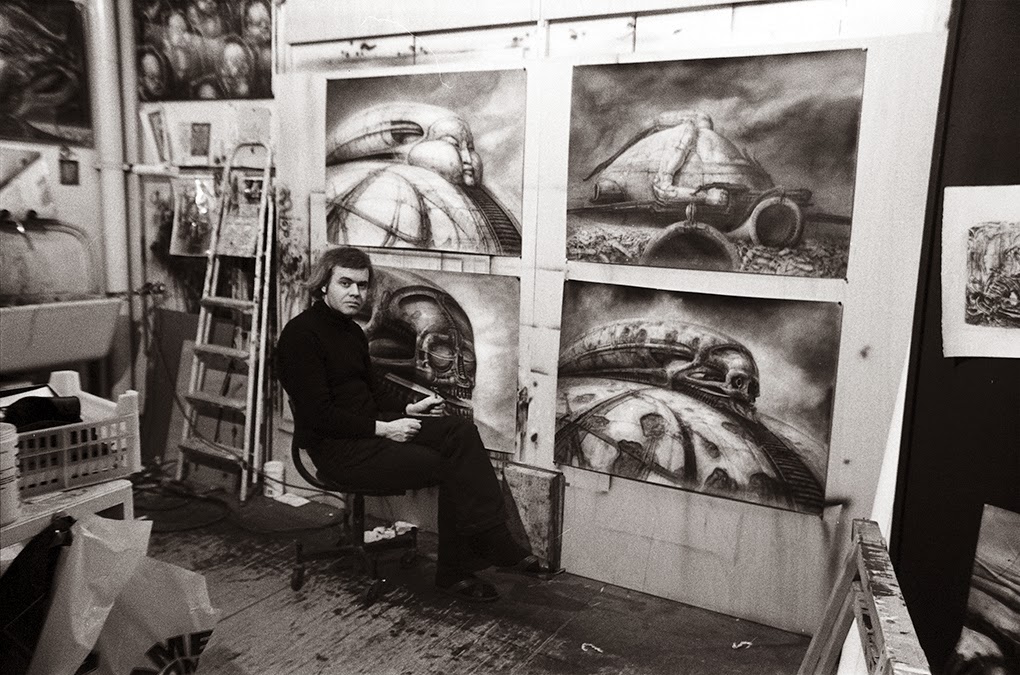
Giger in his studio, while working on the ‘Dune’ project.

Detail of wall in the ‘HR Giger Bar‘ in Château St. Germain, Gruyères, Switzerland.

Interior detail of the ‘HR Giger Bar‘ in Château St. Germain, Gruyères, Switzerland.

Interior detail of the ‘HR Giger Bar‘ in Château St. Germain, Gruyères, Switzerland.
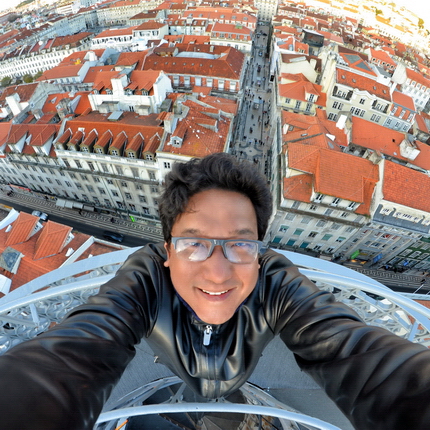
 Your courses were always the best. By the way, just went through a bit of your website. It’s great! Some good stuff in there that I wouldn’t normally chance upon
Your courses were always the best. By the way, just went through a bit of your website. It’s great! Some good stuff in there that I wouldn’t normally chance upon Photo Gallery
Photo Gallery #NowFollowing @Milindo_Taid One of the most influential n interesting mentor from my design school. Always loaded. :)
#NowFollowing @Milindo_Taid One of the most influential n interesting mentor from my design school. Always loaded. :) Love your site Milindo. I was excited to see you displaying my husband’s watermelon carvings
Love your site Milindo. I was excited to see you displaying my husband’s watermelon carvings So glad you enjoyed my photos, really honored to be featured on your blog. thank you sir!
So glad you enjoyed my photos, really honored to be featured on your blog. thank you sir! Photo gallery
Photo gallery Photo gallery
Photo gallery You are awesome :)
You are awesome :) Photo gallery
Photo gallery Photo gallery
Photo gallery Milind never told u but u were my first true inspiration….I almost learnt the guitar watching u play…..thanx for being there
Milind never told u but u were my first true inspiration….I almost learnt the guitar watching u play…..thanx for being there Just detected your blog: impressive. wishing you continued inspiration and health.
Just detected your blog: impressive. wishing you continued inspiration and health. You are inimitable!
You are inimitable! i really like your blog – good interesting stuff as always !
i really like your blog – good interesting stuff as always ! Absolutely amazing blog – a chest full of treasure.
Absolutely amazing blog – a chest full of treasure. I was just looking at your website… amazing it is… full of knowledge as always..
I was just looking at your website… amazing it is… full of knowledge as always.. Milindo Taid – ace teacher, rockstar guide to my projects at film school, guitarist and photographer too. Really good human being as well
Milindo Taid – ace teacher, rockstar guide to my projects at film school, guitarist and photographer too. Really good human being as well With all the magical places you are checking off your bucket list! I want to know how to be you :)
With all the magical places you are checking off your bucket list! I want to know how to be you :) veryveryinterestingwebsite.have been visiting! thankyou!
veryveryinterestingwebsite.have been visiting! thankyou! Hi Milindo, hope you are inspiring many more around you…wherever you are!
Hi Milindo, hope you are inspiring many more around you…wherever you are! Your website is full of delightful posts. I’m going to have to watch where my time goes when I’m visiting! :)
Your website is full of delightful posts. I’m going to have to watch where my time goes when I’m visiting! :) Photo gallery
Photo gallery Happy teachers day! Out of all, your teachings n your way of being have really made a big positive impact on me.
Happy teachers day! Out of all, your teachings n your way of being have really made a big positive impact on me. Guitar in your hand reminds me of the MCRC days! You are terrific… :)
Guitar in your hand reminds me of the MCRC days! You are terrific… :) Photo gallery
Photo gallery Photo gallery
Photo gallery Photo Gallery
Photo Gallery Photo gallery
Photo gallery This is by far amongst the best curated creative content sites out there and the eye and vision of one man, when good, works better than any funded team. Inspired enormously once again :)
This is by far amongst the best curated creative content sites out there and the eye and vision of one man, when good, works better than any funded team. Inspired enormously once again :) Still a fan of your unique and sweet finger strum on acoustic guitar. It made an ordinary guitar sound great. Would just love to see and hear one of those too.
Still a fan of your unique and sweet finger strum on acoustic guitar. It made an ordinary guitar sound great. Would just love to see and hear one of those too. Photo gallery
Photo gallery OMG its like a painting!! you have taken photography to another level!!!
OMG its like a painting!! you have taken photography to another level!!! I discover TL of a writer and respected intellectual, with a tolerant, global conscience: @GhoshAmitav – tx @Milindo_Taid
I discover TL of a writer and respected intellectual, with a tolerant, global conscience: @GhoshAmitav – tx @Milindo_Taid Photo gallery
Photo gallery You’ll love this site by the awesome Milindo Taid
You’ll love this site by the awesome Milindo Taid Photo gallery
Photo gallery We need more teachers like you :)
We need more teachers like you :) hope you’re changing the world as always :)
hope you’re changing the world as always :) Photo gallery
Photo gallery Grt milindo. eachtime want to check out something good on net…know where to go now!
Grt milindo. eachtime want to check out something good on net…know where to go now! Photo gallery
Photo gallery Oldest operating bookstore
Oldest operating bookstore Photo gallery
Photo gallery Photo gallery
Photo gallery Never thought I’d say this, but it was the most interesting classes I’ve sat in.. and of course, the day you played Sultans of Swing for us. Hope you continue to influence the next generations with your dynamic yet simple teachings.
Never thought I’d say this, but it was the most interesting classes I’ve sat in.. and of course, the day you played Sultans of Swing for us. Hope you continue to influence the next generations with your dynamic yet simple teachings. love ur pics…they are like those moments which u capture in your mind and wished u had a camera right at that moment to capture it…but u actually do capture them :) beautiful…!!!
love ur pics…they are like those moments which u capture in your mind and wished u had a camera right at that moment to capture it…but u actually do capture them :) beautiful…!!! You’re a role model sir, such awesomeness !!! :D
You’re a role model sir, such awesomeness !!! :D You are the only faculty member I could connect to!
You are the only faculty member I could connect to! Photo Gallery
Photo Gallery Photo gallery
Photo gallery Photo gallery
Photo gallery Its really good to see you Milindo, with such awesome stuff from you as usual.. loved your blog as well!
Its really good to see you Milindo, with such awesome stuff from you as usual.. loved your blog as well! Photo gallery
Photo gallery